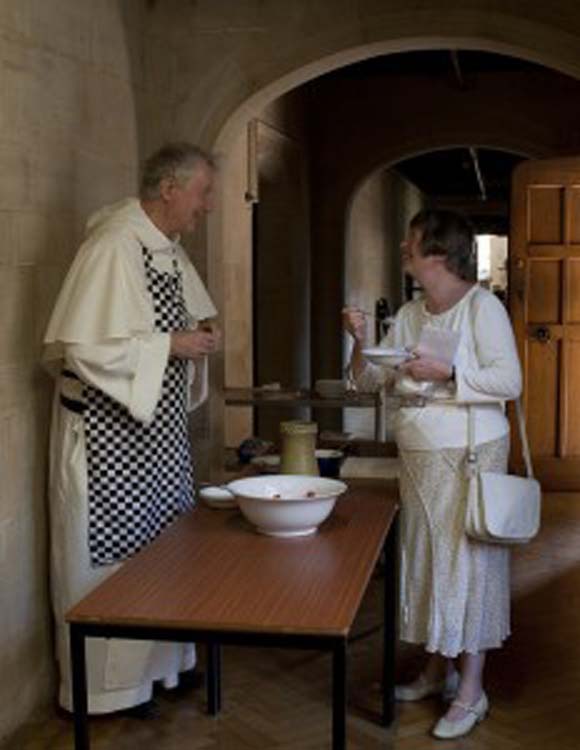
Sacraments: Holy Orders
In considering how those in holy orders share in Christ’s kingship we should recall what Jesus said to his disciples about leadership:
You know that those who are supposed to rule over the Gentiles lord it over them, and their great men exercise authority over them. But it shall not be so among you; but whoever would be great among you must be your servant, and whoever would be first among you must be slave of all. For the Son of man also came not to be served but to serve, and to give his life as a ransom for many (Mark 10:42-45).
Anyone who believes the sacrament of holy orders is all about power, and is upset that the priesthood is primarily restricted to celibate men, is rather missing the point. The sacrament of holy orders is not an individual right that enables the recipient to wield certain kinds of power, but rather it is a gift of Christ to the whole Church. Being called to exercise Christ’s kingship in holy orders is fundamentally about service. The bishop serves his diocese by being a focus of unity in the local Church, the priest serves his flock by administering the sacraments, and the deacon serves the community in the liturgy of the word and by assisting during the celebration of the Eucharist. This is over and above the service all Christians are called to in serving their neighbour in building up the kingdom of God. Being a citizen in God’s Kingdom means you have certain rights and it is the duty of those in holy orders to ensure that those rights are satisfied. Sacred ministers may not deny the sacraments to those who opportunely ask for them, are properly disposed and are not prohibited by canon law from receiving them.
In exercising Christ’s prophetic office, those in holy orders need to be teachers. All Christians are called to preach the Gospel by showing how their service of others is rooted in their relationship with Christ, but those in holy orders do this in a very explicit way. Ministers who preach at Mass need to be able to interpret the signs of the times in the light of Christ’s death and resurrection. To do this convincingly, a lot of training is required – to become a priest, canon law requires that you complete six full years of study. A priest needs to be able to articulate how what goes on in the Mass and what we read in the scriptures relates to the Christian life of faith, hope and charity.
In exercising Christ’s priestly office, the priest acting in the person of Christ makes present the Eucharistic sacrifice, and offers it to God in the name of all the people. This is at the heart of the Christian life. We are in communion with each other by being in communion with the Trinity, and the role of the priest in the Mass is both symbolic and real. Because the sacraments are symbolic, there is a relationship between what we see and what we believe, and this relationship is the deepest reality there is. The intimate relationships of the Trinity, Father, Son and Spirit, are truly manifested in the sacraments. The priest really embodies Christ. It really is Christ who breaks the bread and says ‘this is my body.’ It really is Christ who takes the chalice and says ‘this is the chalice of my blood.’ Because the unbloody sacrifice of the Mass is truly related to Christ’s bloody sacrifice on the cross, the priest really does allow us to offer a sacrifice of thanks and praise through the Holy Spirit.




